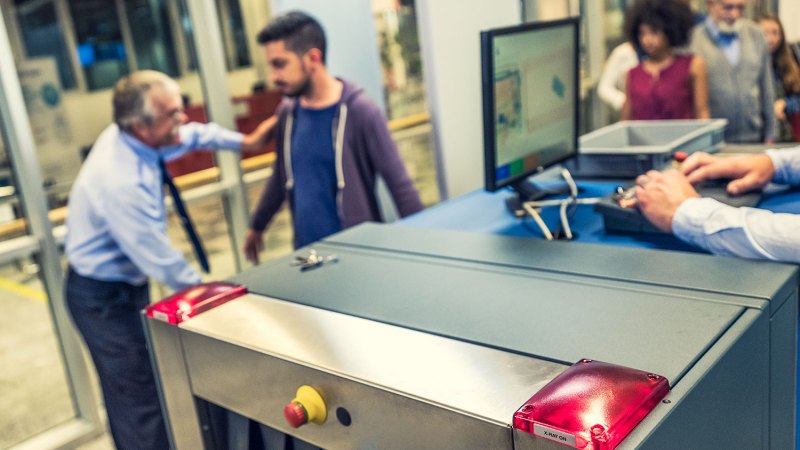
We’re grabbing technology by the balls these days. We have personal jetpacks, ninja-quiet, all-electric yachts, and even flying cars (mostly). But, somehow X-ray vision has eluded us. The friendly folks at TSA are vaguely capable of sussing out a bomb-shaped item on your person. Yet, they still need each and every passenger to remove the shampoo and Drakkar Noir from their carry-on bags. Now, thanks to new advancements currently being trialed at several domestic airports, those dark days could soon be behind us.
The new machines rely on computed tomography (CT) scanning like that used on car crash victims to provide an accurate picture of what’s inside each bag. The most significant advance over current scanners is that the technology provides a detailed 3D rendering of each item. This allows security personnel to view every toiletry, laptop, and piece of knickers from every possible angle to facilitate a more complete picture.
The main need for such technology is, of course, to search for illicit substances whether that’s drugs, bombs, or less exciting but still illegal contraband. According to officials behind the pilot program, CT technology is capable of detecting hidden explosives far better than existing scanners.
While bomb-free planes are nice, what we should be focusing on is how this technology could liberate us from the dreaded 3-1-1 liquid restrictions for carry-on luggage. There’s an obvious immediate benefit to this. In essence, every traveler could travel almost like TSA PreCheck travelers already do — not removing their shoes and leaving everything (including liquids and laptops) in their hand luggage. This has the potential to expedite security checkpoints exponentially. Remember the easy, good ol’ days of flying when sexist airline ads were rampant, and you could buy your ticket onboard the plane and chain-smoke Pall Malls all the way from JFK to Honolulu? We imagine it’d be kind of like that.
In theory, better screening should lead to a reduction in TSA manpower, fewer missed flights, and less overall hassle for passengers. So, the technology has the potential to make air travel cheaper, easier, and more reliable. Again: in theory. The TSA’s track record of actually doing their job is, let’s just say, less than optimal.
The technology will soon be trialed at London’s Heathrow International airport. But, it’s already in place at Boston’s Logan International Airport and Sky Harbor International Airport in Phoenix. The TSA plans to have a total of 40 scanners in place at various domestic airports by year’s end. Nearly 150 should be installed by the end of fiscal year 2019.



